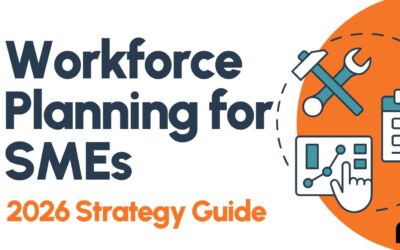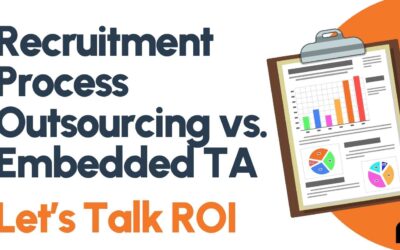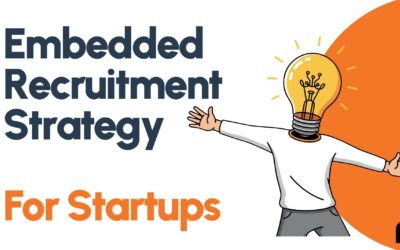AI Recruitment: Leading with Ethics and Accountability
Recruiters face immense pressure to hire quickly and at scale. AI recruitment promises relief, offering tools to streamline job ads, sift CVs, and even conduct video interviews. The allure is clear: automation can shrink time-to-hire, reduce admin tasks, and potentially minimise bias.
According to Gartner (2025), over 60% of HR leaders use GenAI up from 19% in June 2023, with that number expected to climb sharply. By automating repetitive tasks, AI tools claim to let HR teams focus on high-value work like strategy and employee experience.
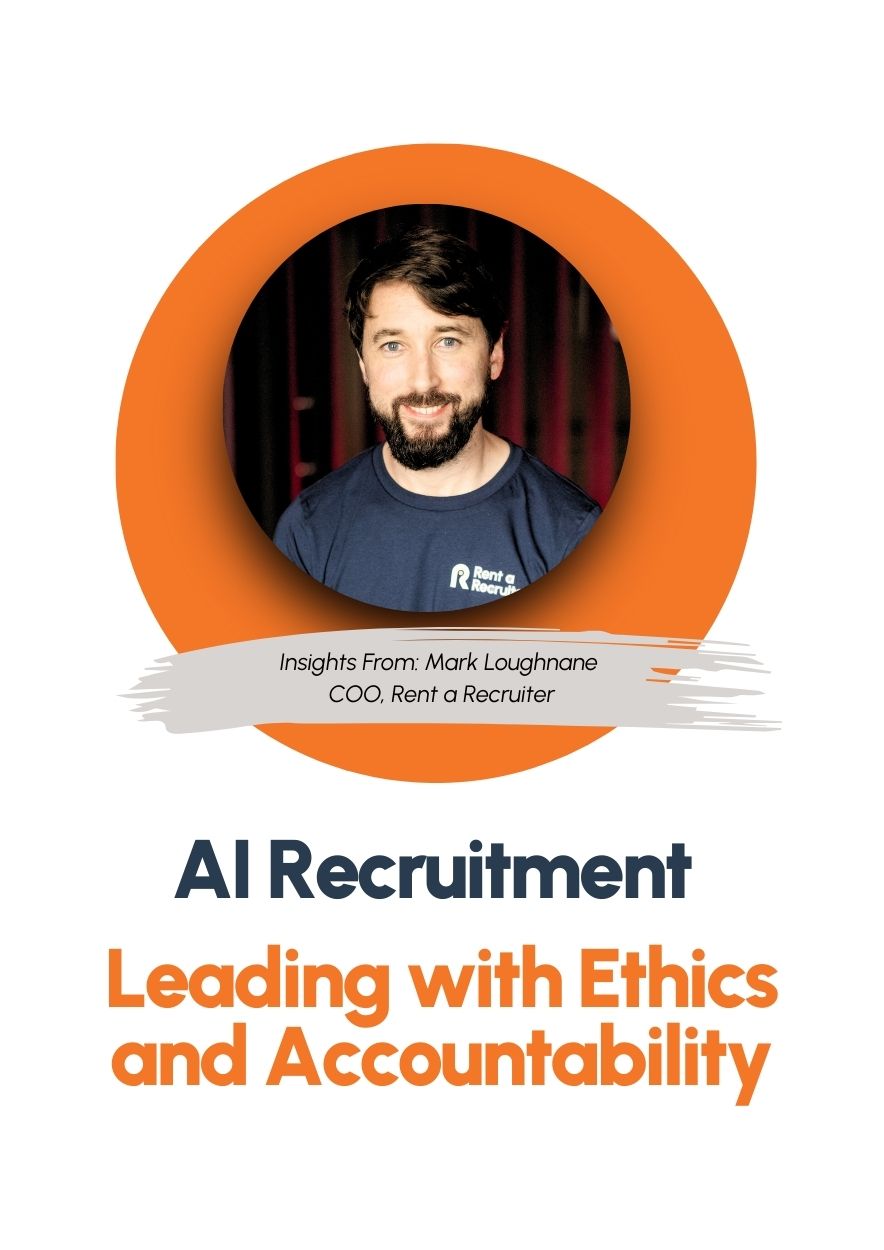
But behind the promise lie growing concerns. Candidates report frustration with impersonal processes, rejection without explanation, and the sense of being judged by algorithms rather than people. AI recruitment without ethics risks alienating talent and damaging employer brands.
To fully realise the benefits of AI recruitment, businesses must prioritise not just speed, but fairness and transparency. Doing so allows them to attract top talent and build a stronger employer reputation while minimising compliance risk.
Unmasking Algorithmic Bias: The Hidden Hurdles
The core challenge of AI recruitment lies in bias. Algorithms are trained on historical data, but that data often reflects past discrimination. As the saying goes, “garbage in, garbage out” becomes “bias in, bias amplified.”
For instance, Amazon famously scrapped an AI recruiting tool that downgraded CVs from women because it was trained on male-dominated hiring data. More recently, Australian researchers found AI tools had significantly higher error rates when interpreting speech from non-native English speakers or candidates with accents.
These real-world examples show how AI can entrench inequality:
- Screening algorithms penalising candidates based on zip codes linked to lower-income areas
- Image-recognition software preferring lighter skin tones
- Resume filters eliminating those with gaps in employment, often disadvantaging women or caregivers
The opacity of these systems, often called “black boxes,” makes auditing them challenging. Without clear visibility into how decisions are made, companies risk perpetuating hidden biases and breaching fairness laws.
Transparency in model training and decision-making is essential. Regular audits by diverse stakeholders can surface unexpected patterns and enable course corrections. Companies should also communicate openly with candidates about how AI tools influence their application experience.
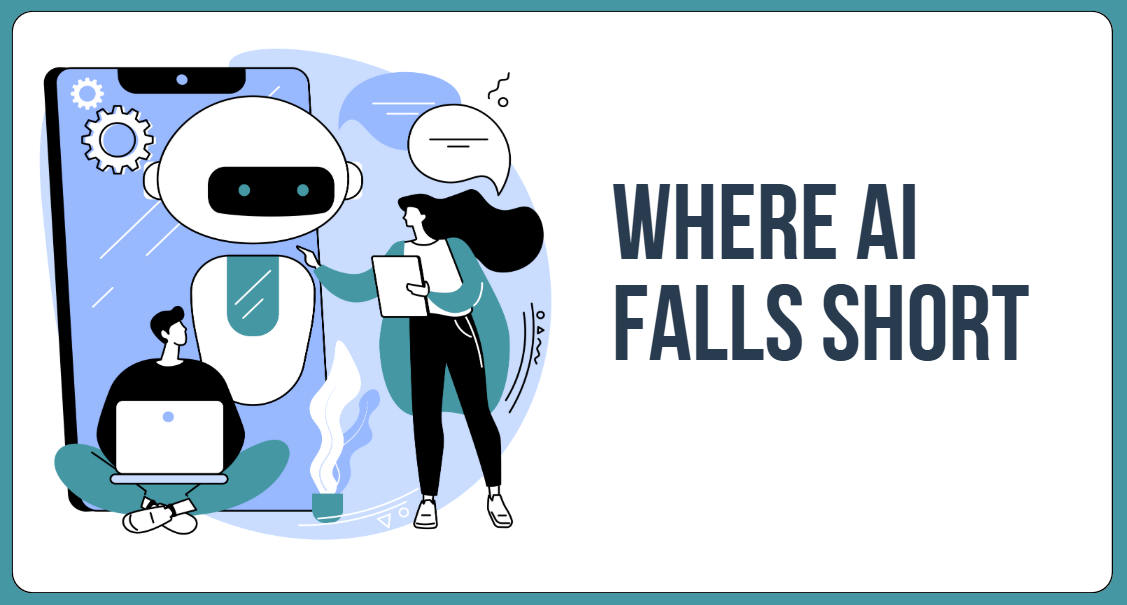
The Human Touch: Where AI Falls Short (and Why It Matters)
Ethical AI recruitment demands human oversight, because not everything in hiring can be automated. Empathy, intuition, and context are irreplaceable in understanding candidates’ motivations, soft skills, and potential.
AI struggles to:
- Assess cultural fit and interpersonal dynamics
- Interpret creativity, adaptability, or values alignment
- Adjust in real-time to non-standard responses or behaviours
Moreover, human recruiters offer accountability. When final hiring decisions rest with a person, there is a layer of ethical judgment and flexibility that AI cannot replicate.
Crucially, ethical hiring is not just about avoiding bias. It is about making better decisions. Diverse teams perform better, innovate more, and drive stronger business outcomes. Ensuring human input in evaluating AI decisions helps maintain this strategic advantage.
In practice, recruiters must be trained to interpret AI outputs with a critical lens. They should also be empowered to override or adjust recommendations when intuition or experience indicates the machine got it wrong.
Ethical Frameworks: The Strategic Edge in AI Recruitment
So how can organisations implement AI recruitment responsibly? It starts with ethical frameworks that prioritise fairness, transparency, and accountability.
Key principles include:
- Explainability: Candidates should know when AI is used and understand how it impacts their application.
- Transparency: Employers must be able to audit and justify AI-driven decisions.
- Fairness: Regular testing for disparate impact across gender, race, and disability is essential.
- Accountability: Human oversight must be built in, with clear ownership of decisions.
Scale your team without compromising fairness
Our embedded recruiters integrate within 5 days, combining ethical AI recruitment tools with human insight to ensure equitable, efficient hiring.
Practical steps include:
- Using diverse training data to avoid reinforcing existing biases
- Regular algorithm audits by internal and third-party experts
- Human-in-the-loop systems where AI supports, not replaces, final decisions
- Communicating clearly with candidates about how their data is used
Legal and reputational risks are also growing. The EU AI Act and UK ICO guidelines set new standards for lawful, transparent use of AI in hiring. Failure to comply could mean fines, lawsuits, and brand damage.
To go beyond compliance, organisations should make ethics a core part of their hiring strategy. This includes forming AI ethics committees, involving diverse perspectives in system design, and publicly committing to ethical hiring practices.
Future-Proofing Hiring: A Balanced Approach to AI Recruitment
The future of AI recruitment lies in balance, leveraging technology for efficiency while retaining human judgment for fairness.
HR leaders must shift from gatekeepers to strategic partners in AI adoption. That means:
- Leading conversations on ethics in tech deployment
- Partnering with legal, DEI, and IT teams
- Advocating for candidate experience and transparency
When applied ethically, AI recruitment can:
- Reduce administrative workload
- Flag promising candidates faster
- Improve consistency in screening
But without careful implementation, it risks:
- Excluding marginalised candidates
- Undermining trust in the hiring process
- Violating legal and ethical standards
Organisations that get this right will not only avoid risk. They will build fairer, stronger, more innovative teams.
They will also become talent magnets. As candidates grow more aware of how AI influences hiring, companies with transparent, ethical approaches will stand out.
This reputational edge can drive long-term gains in brand equity and employee loyalty.
FAQs
What is AI recruitment?
AI recruitment refers to the use of artificial intelligence tools to support and automate parts of the hiring process, from screening CVs to scheduling interviews.
Can AI recruitment be biased?
Yes. Bias often arises from flawed training data or opaque algorithms. Ethical frameworks are essential to mitigate these risks.
Are there laws governing AI in recruitment?
Yes. The EU AI Act, UK GDPR, and U.S. EEOC regulations all set standards around transparency, fairness, and data rights.
Will AI recruitment replace human recruiters?
No. While AI handles high-volume tasks, human insight is critical for ethical judgment, soft skills assessment, and final decisions.
How can companies implement AI recruitment ethically?
Start by auditing tools, ensuring diverse training data, adding human oversight, and clearly communicating with candidates.

About the Author:
Mark Loughnane has over 15 years of experience in the recruitment industry, specialising in the development and delivery of scalable recruitment services. His career has spanned high-volume ramp-up projects and day-to-day hiring across the Life Sciences and Manufacturing sectors. Today, Mark leads our Rent a Recruiter service while also managing the wider recruitment team, ensuring clients receive both strategic guidance and hands-on delivery.
Ready to future-proof your hiring?
Ethical AI recruitment must be your priority. Our embedded recruiters blend cutting-edge tools with human expertise to deliver results efficiently and responsibly.
Want to dive deeper into how AI is transforming jobs and the skills leaders need to prioritise?
Watch our latest podcast episode on AI and the Future of Work featuring UCD Lecturer Andrew Hines.
